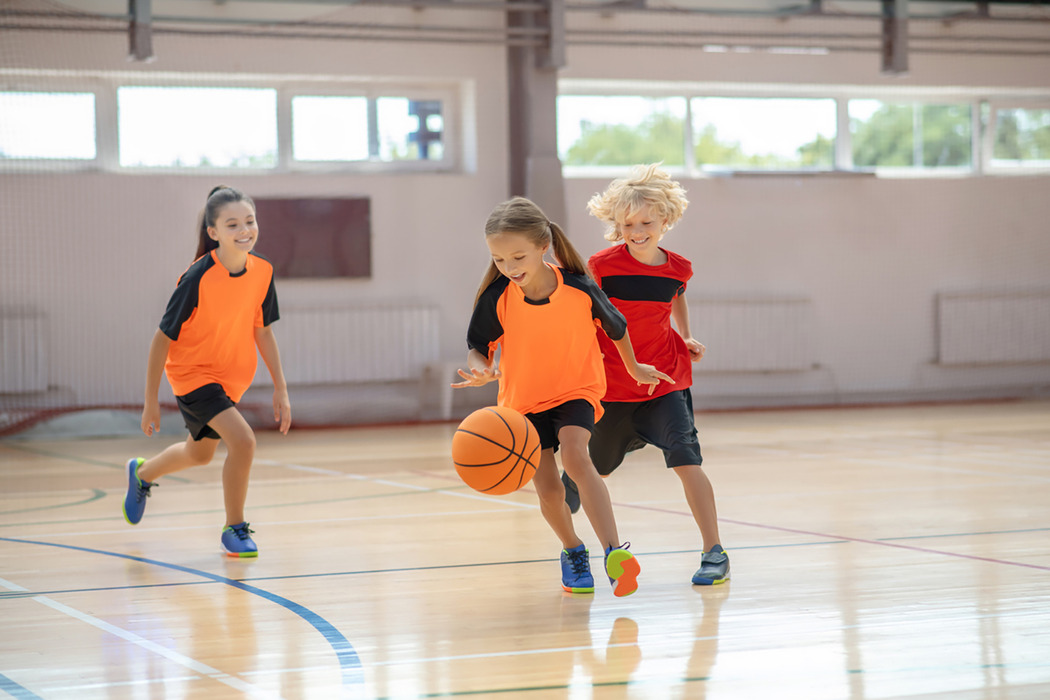
May marks National Physical Fitness and Sports Month, a time dedicated to celebrating the importance of physical activity in maintaining health and wellness. This observance presents an excellent opportunity to highlight the critical role of exercise and sports in pediatric health. From building strong bones and muscles to supporting cognitive development and fostering social skills, regular physical activity is essential for children’s growth and development.
Let’s Prioritize Healthy Lifestyles
In today’s digital age, where screens often compete for attention, encouraging children to engage in physical activity has never been more important. According to the World Health Organization, childhood obesity has reached epidemic proportions globally, with the prevalence nearly doubling since 1980. Sedentary lifestyles and poor dietary habits contribute significantly to this alarming trend, putting children at risk of developing chronic health conditions such as type 2 diabetes, hypertension, and cardiovascular disease.

Physical Activity is Important for Our Children
National Physical Fitness and Sports Month serves as a reminder of the importance of prioritizing physical activity and sports participation in children’s lives. Regular exercise offers numerous benefits for pediatric health, including:
- Physical Health: Engaging in physical activity helps children maintain a healthy weight, build strong muscles and bones, and improve cardiovascular fitness. Regular exercise also reduces the risk of obesity and related health problems, such as type 2 diabetes and high blood pressure.
- Mental Health: Physical activity has been shown to have a positive impact on children’s mental health and well-being. Exercise releases endorphins, neurotransmitters that promote feelings of happiness and reduce stress and anxiety. Regular physical activity can also improve sleep quality and boost self-esteem and confidence.
- Cognitive Development: Physical activity stimulates brain function and enhances cognitive skills such as memory, attention, and problem-solving. Research has shown that children who are physically active perform better academically and have improved concentration and classroom behavior.
- Social Skills: Participating in sports and physical activities provides children with opportunities to develop social skills such as teamwork, cooperation, and communication. Team sports, in particular, teach children valuable lessons in leadership, sportsmanship, and resilience, fostering lifelong friendships and positive peer relationships.
- Healthy Habits for Life: Instilling a love of physical activity at a young age sets the foundation for a lifetime of healthy habits. Children who are active are more likely to continue exercising into adulthood, reducing their risk of chronic diseases and improving their overall quality of life.
What We Can Do
As pediatricians, parents, educators, and community leaders, we all play a crucial role in promoting physical fitness and sports participation among children. Here are some strategies to encourage children to lead active lifestyles:
- Lead by Example: Children are more likely to be active if they see adults engaging in physical activity regularly. Set a positive example by prioritizing exercise in your own daily routine.
- Make It Fun: Encourage children to find physical activities they enjoy, whether it’s playing a sport, riding a bike, dancing, or hiking. Make physical activity a family affair by planning active outings and adventures together.
- Limit Screen Time: Set limits on screen time and encourage children to spend more time outdoors playing and exploring. Create screen-free zones and times, such as during meals and before bedtime, to promote physical activity and social interaction.
- Provide Opportunities: Enroll children in sports leagues, community recreation programs, or school physical education classes to provide structured opportunities for physical activity. Encourage participation in a variety of activities to discover interests and talents.
- Celebrate Achievements: Recognize and celebrate children’s accomplishments and milestones in physical fitness and sports. Whether it’s mastering a new skill, completing a race, or simply having fun playing with friends, acknowledge their efforts and encourage them to keep moving forward.
As we celebrate National Physical Fitness and Sports Month, let’s recommit ourselves to promoting the health and well-being of our children through regular physical activity and sports participation. Together, we can inspire the next generation to lead active, healthy lives and build a brighter future for all.
